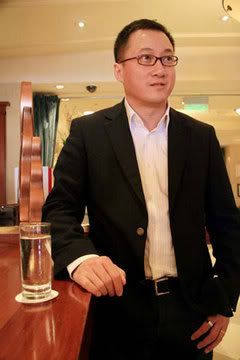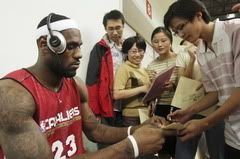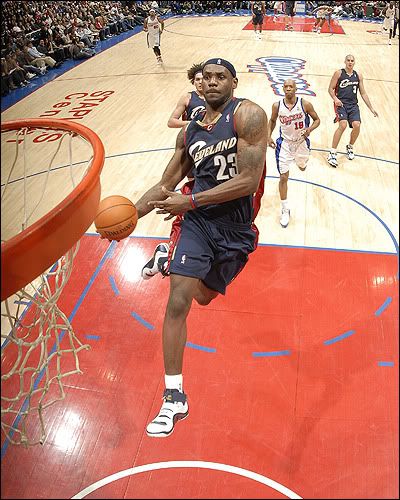After the United States and China, the country I've spent the largest chunck of my life in is the Netherlands. When I was twenty years-old and in the first semester of my junior year at Saint Louis University, I spent four months studying abroad and living in Maastricht, the Netherlands.
Today was a very happy day for me. For those that have tuned out of the World Cup, the Netherlands had a gutsy, impassioned semifinal victory over Uruguay, 3 - 2.

The Netherlands has a very special place in my heart.
Maastricht, the town where I lived in while studying abroad, is a town of about 120,000 people on the southern tip of the Netherlands. It is just a short bike ride from the border of Belgium. Maastricht is one of the oldest cities in the Netherlands with a history that dates back to the Roman Empire. In more recent history, it is where the
Maastricht Treaty was signed in 1992. The Maastricht Treaty is the agreement that, for better or worse, created the Euro as a currency.
Partly due to its long history, Maastricht is largely a resort tourist town these days. The architecture is ancient (one neat fact about my life is that I've lived in two cities that have city walls: Maastricht and Xi'an). Most of the narrow streets are made of cobblestone. It is the hilliest place in the Netherlands. The Maas River running through the middle provides outdoor activities as well as vibrant night time scenes. And there are more than 300 pubs and 25 coffee shops (the, uh, Dutch kind) in the small hamlet.
Maastricht is, in my mind, one of the most beautiful places on Earth. It is an absolutely mind-blowing place for a twenty year-old college kid from middle America to live for a few months.
As weird as it sounds, my time in Maastricht is the one of the main reasons why I ended up going to and living in China for so long. Before studying in the Netherlands, I'd never been very international-thinking at all. Maybe it's because I am from land-locked Kansas. Maybe it was my fear of foreign languages (I never did well in Spanish). I don't know. But up until that point in my life, I never had an inkling that I'd want to spend a significant part of my life outside of the United States. That all changed after spending time in another culture and "seeing the world."
Life in Maastricht was like nothing I'd ever experienced before. On top all the gushing things I've said about Maastricht itself as a city, the town is in a perfect base of operations for seeing the rest of Europe. In my cushy study abroad program, we had three day weekends EVERY WEEKEND. It was ridiculous. In the middle of the semester, we had a ten day vacation as well. During all of my time off, I was able to visit something like twenty countries including Italy, Germany, Spain, the Czech Republic, the Balkans, and many more. My eyes were opened to so many new things.
While in the Netherlands, one of my best friends, Mikey, talked about teaching English in Japan after graduating from college. The more time I spent abroad, the more the idea started to resonate with me. I'd heard my mom mention a couple years before that Asia really needed native English teachers from western countries to go abroad to teach. When I heard her say that, I'd never considered doing such a thing. I didn't understand how a person could live in such a foreign place without being able to speak the language (at the time, I also, foolishly, thought Asian languages were impossible to learn). Going around Europe and living in a country that spoke another tongue changed my attitudes towards going abroad to Asia after graduating from college.
A year after studying abroad in the Netherlands during my senior year of college, I applied to teach English in Japan through the
JET Program. The program was surprisingly competitive to get into. I made the first round of cuts, went to an interview at the Japanese consulate in Chicago, and was then wait-listed to the program. It turned out that I never was called and never had the chance to go to Japan through JET (just think, you could be reading "Mark's Japan Blog").
After some scrambling and looking at places like Taiwan and Chile, I ended up going to Kansas City's sister-city in China, Xi'an to satiate my itch to get outside of the United States. The next three and a half years of my life after that were spent in the Middle Kingdom. And today, even in America, China dominates my life.
So, that's my personal story with the Netherlands and how it changed my life. Well, almost all of it.
Even before studying abroad, I was a huge Netherlands football fan. It was largely based on their bright orange jersey. In 1998, I even splurged and bought the authentic, expensive-as-all-hell Nike Netherlands jersey:

It wasn't all about the jersey though. In addition to the sweet threads, that '98 Dutch team was a blast to watch. I still remember Patrick Kluivert, Edgar Davids, Edwin van der Sar, and others. That team, which made the semifinals and lost to Brazil, was a great team to support.
Ever since the '94 World Cup in America, I've been addicted to the World Cup. I've stayed up late or woken up early many times to watch games. (This year I've been blessed with an incredibly cool manager at work who has kids who played soccer and have been allowed to have the games on while we work on a computer that nobody uses. I've literally seen just about every minute of every single game of this Cup in Africa. It's been bliss.) Every year, the Netherlands has been my number two team after America (except for 2002 when the Dutch didn't qualify).
In 2006 while watching the Cup backpacking in southwest China with my South African friend, Joseph, I was particularly struck by one player - Dirk Kuyt. His energy and hustle stood out to me. His appearance also stands out too; a tall bleach-blonde Dutchman sprinting around is hard to miss:

After that 2006 World Cup, I got into the English Premier League via my friends from England while living in China. I figured out after a while that Kuyt plays for Liverpool. After seeing him on Liverpool, I embraced Liverpool as
my team in the English Premier League.
Kuyt is still my favorite footballer in the world. I've told many an Englishman and people abroad that my Dirk Kuyt is my favorite player and he's the reason why I like Liverpool. They usually laugh at me and say that he's goofy and unskilled. Well, he's playing awesome this World Cup and his team is playing in the final! So haters be damned!
Sunday is going to be a great day. I can't wait to watch the Netherlands win the World Cup. The team and this run means a lot to me. Not only has it reminded me of my great times in the Netherlands and made my proud of my Dutch "heritage," but the Dutch have put on a wonderful display of football for the world.



 SHANGHAI — NBA star and Shanghai Sharks owner Yao Ming urged China on Friday to say no to shark fin soup to stop the overfishing of some species amid growing demand for the delicacy.
SHANGHAI — NBA star and Shanghai Sharks owner Yao Ming urged China on Friday to say no to shark fin soup to stop the overfishing of some species amid growing demand for the delicacy.

 CHICAGO (Reuters) - Chinese basketball star Yao Ming's foot surgery will keep him out next season, but the National Basketball Association will not feel the pain in China because the U.S. sports league has grown beyond any one player there, analysts said on Friday.
CHICAGO (Reuters) - Chinese basketball star Yao Ming's foot surgery will keep him out next season, but the National Basketball Association will not feel the pain in China because the U.S. sports league has grown beyond any one player there, analysts said on Friday. According to multiple sources within the Cavs, franchise majority owner Dan Gilbert has a tentative agreement in place to allow a group of Chinese investors to purchase a significant stake in the Cavaliers Operating Company, the entity that owns the Cavs and operates Quicken Loans Arena. The group is led by JianHua (Kenny) Huang, a Chinese businessman who has become successful by linking American and Chinese companies.
According to multiple sources within the Cavs, franchise majority owner Dan Gilbert has a tentative agreement in place to allow a group of Chinese investors to purchase a significant stake in the Cavaliers Operating Company, the entity that owns the Cavs and operates Quicken Loans Arena. The group is led by JianHua (Kenny) Huang, a Chinese businessman who has become successful by linking American and Chinese companies.  "This has recently happened again. As has been done previously, we're in the process of reviewing the possibility presented to us. Beyond that, we do not feel it would be appropriate to give further comment at this time."
"This has recently happened again. As has been done previously, we're in the process of reviewing the possibility presented to us. Beyond that, we do not feel it would be appropriate to give further comment at this time."



















